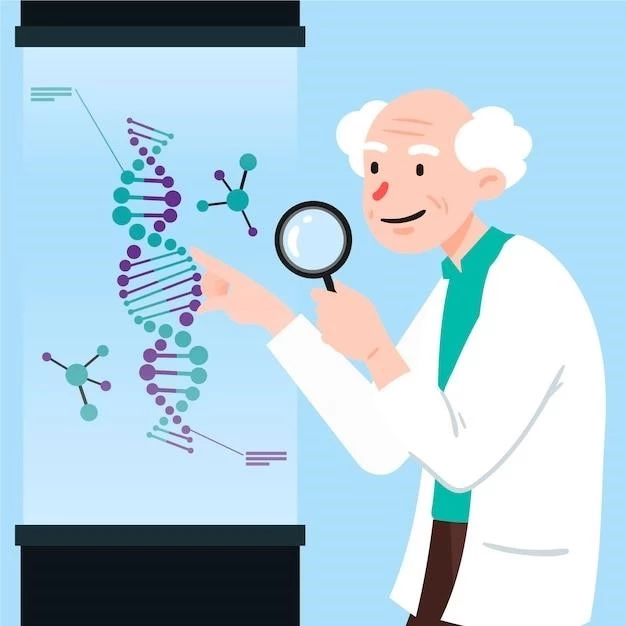Lewandowski-Kikolich Syndrome
Introduction
Lewandowski-Kikolich syndrome, a rare genetic neurodevelopmental disorder, is characterized by a range of symptoms affecting cognitive and behavioral development. This syndrome is caused by a specific mutation in a gene located on a particular chromosome.
Individuals with Lewandowski-Kikolich syndrome often experience developmental delays, intellectual disabilities, speech delays, and behavioral problems that can vary in severity. Understanding the genetic basis, symptoms, diagnosis, and treatment approaches for this syndrome is crucial for providing appropriate care and support.
This article aims to explore the genetic foundation of Lewandowski-Kikolich syndrome, its associated symptoms, methods for diagnosis, treatment options, impact on individuals and families, as well as ongoing research efforts and future directions in the field. By shedding light on this rare condition, we can enhance awareness and contribute to advancements in the management of this syndrome.
Genetic Basis
Lewandowski-Kikolich syndrome is a rare genetic disorder caused by a specific mutation in a gene located on chromosome 19. The mutation disrupts normal neurodevelopmental processes, leading to the manifestation of various symptoms associated with the syndrome.
The gene responsible for Lewandowski-Kikolich syndrome plays a crucial role in brain development and function. Mutations in this gene result in abnormalities that affect cognitive abilities, behavior, and communication skills in individuals with the syndrome.
Due to the genetic nature of Lewandowski-Kikolich syndrome, the condition is inherited in an autosomal dominant pattern, meaning that only one copy of the mutated gene is sufficient to cause the disorder. In some cases, the mutation may occur sporadically, leading to the syndrome in individuals with no family history of the condition.
Research into the specific mechanisms by which the gene mutation leads to the development of Lewandowski-Kikolich syndrome is ongoing. Understanding the genetic basis of the syndrome is essential for improving diagnostic methods, developing targeted treatments, and providing genetic counseling to individuals and families affected by this rare neurodevelopmental disorder.
Symptoms
Individuals with Lewandowski-Kikolich syndrome may present with a range of symptoms affecting various aspects of their physical, cognitive, and behavioral development. Common symptoms of this rare genetic neurodevelopmental disorder include⁚
- Developmental delay⁚ Children with Lewandowski-Kikolich syndrome may exhibit delays in reaching developmental milestones such as sitting, crawling, walking, and talking.
- Intellectual disability⁚ Cognitive impairment is a hallmark feature of the syndrome, with individuals typically experiencing challenges in learning, reasoning, problem-solving, and adaptive functioning;
- Speech delay⁚ Speech and language difficulties are common in individuals with Lewandowski-Kikolich syndrome, leading to challenges in communication and expressive language skills.
- Behavioral problems⁚ Behavioral issues such as impulsivity, hyperactivity, aggression, and emotional dysregulation may be observed in individuals with the syndrome.
- Sensory sensitivities⁚ Some individuals with Lewandowski-Kikolich syndrome may have heightened sensitivities to sensory stimuli, leading to difficulties in processing sensory information.
- Social challenges⁚ Difficulties in social interactions, forming relationships, and understanding social cues are common in individuals with the syndrome.
The severity and combination of symptoms can vary among affected individuals, with some experiencing milder manifestations while others may have more profound challenges in multiple areas of development. A holistic approach to managing the symptoms of Lewandowski-Kikolich syndrome involves a multidisciplinary team of healthcare professionals to address the diverse needs of individuals with this condition.
Diagnosis
Diagnosing Lewandowski-Kikolich syndrome involves a comprehensive evaluation that considers the individual’s symptoms, medical history, developmental milestones, and genetic testing. Given the rarity of this syndrome and its overlap with other neurodevelopmental disorders, a precise diagnosis is crucial for appropriate management and intervention.
Medical professionals typically begin the diagnostic process by conducting a thorough physical examination and assessing the individual’s developmental progress. Standardized developmental assessments, cognitive testing, and speech evaluations may be used to evaluate the individual’s abilities and challenges in various domains.
Genetic testing plays a key role in confirming the diagnosis of Lewandowski-Kikolich syndrome. Molecular genetic testing, such as chromosomal microarray analysis or targeted gene sequencing, can identify the specific mutation associated with the syndrome. Genetic testing not only confirms the diagnosis but also helps in providing accurate genetic counseling to affected individuals and their families.
It is essential for healthcare providers to collaborate with geneticists and other specialists experienced in diagnosing rare genetic disorders to ensure a comprehensive approach to diagnosis. Early and accurate diagnosis of Lewandowski-Kikolich syndrome enables individuals and families to access appropriate support services, interventions, and personalized care plans to address the unique needs of those affected by this neurodevelopmental disorder.
Treatment Approaches
The management of Lewandowski-Kikolich syndrome involves a multidisciplinary approach aimed at addressing the diverse needs of individuals affected by this rare genetic neurodevelopmental disorder. While there is no specific cure for the syndrome due to its genetic nature, various treatment approaches focus on optimizing development, enhancing quality of life, and supporting individuals and families in coping with associated challenges.
Interventions tailored to the specific symptoms and needs of each individual may include⁚
- Early intervention services⁚ Initiating early developmental interventions, such as physical therapy, speech therapy, occupational therapy, and behavioral interventions, can help address developmental delays and improve communication, motor skills, and behavior.
- Educational support⁚ Individualized education plans (IEPs) and special education services can facilitate learning and skill development for individuals with intellectual disabilities and learning difficulties associated with Lewandowski-Kikolich syndrome.
- Behavioral therapies⁚ Behavior management strategies, social skills training, and cognitive-behavioral interventions may be beneficial in addressing behavioral problems and enhancing social interactions.
- Medication⁚ In some cases, medications to manage specific symptoms such as attention deficits, hyperactivity, anxiety, or mood disorders may be prescribed under the guidance of healthcare professionals.
- Supportive services⁚ Access to support groups, counseling services, and community resources can provide emotional support and practical assistance to individuals and families navigating the challenges of living with Lewandowski-Kikolich syndrome.
Regular monitoring by healthcare providers, ongoing therapy, and adaptive strategies tailored to the individual’s needs are essential components of the treatment plan. By combining medical interventions, behavioral support, education, and social services, a comprehensive treatment approach can improve outcomes and enhance the overall well-being of individuals with Lewandowski-Kikolich syndrome.
Impact on Individuals and Families
Lewandowski-Kikolich syndrome can have a profound and multifaceted impact on both affected individuals and their families, requiring comprehensive support and understanding to navigate the challenges associated with this rare genetic neurodevelopmental disorder.
For individuals with Lewandowski-Kikolich syndrome, the condition may significantly influence various aspects of their lives, including⁚
- Developmental challenges⁚ The associated developmental delays, cognitive impairments, and speech difficulties can impact educational progress, social interactions, and daily functioning.
- Behavioral complexities⁚ Behavioral problems, sensory sensitivities, and emotional dysregulation may present challenges in managing emotions, routines, and relationships for individuals with the syndrome.
- Social interactions⁚ Difficulties in communication, forming social connections, and understanding social cues can affect the individual’s ability to engage with peers, family members, and the community.
- Quality of life⁚ The combination of symptoms and challenges associated with Lewandowski-Kikolich syndrome may impact the individual’s overall quality of life, requiring tailored interventions and support services.

Furthermore, the impact of Lewandowski-Kikolich syndrome extends to family members and caregivers who play a crucial role in supporting and advocating for individuals with the condition. Families may experience⁚
- Emotional stress⁚ Managing the care and needs of a family member with the syndrome can be emotionally demanding, leading to stress, anxiety, and feelings of overwhelm.
- Financial burden⁚ The costs associated with medical care, therapies, and specialized services for individuals with Lewandowski-Kikolich syndrome may pose a financial strain on families.
- Caregiver responsibilities⁚ Balancing caregiving responsibilities with work, household duties, and personal well-being can be challenging for family members caring for a loved one with the syndrome.
Effective support systems, access to resources, respite care services, and community involvement can help alleviate the impact of Lewandowski-Kikolich syndrome on individuals and families, promoting resilience, empowerment, and enhanced quality of life for all those affected by this rare genetic disorder.
Research and Future Directions
Research on Lewandowski-Kikolich syndrome continues to advance our understanding of this rare genetic neurodevelopmental disorder, leading to improved diagnostic techniques, treatment strategies, and personalized care approaches. Ongoing investigations focus on key areas that drive progress in the field and shape future directions for clinical management.
Current research efforts in Lewandowski-Kikolich syndrome include⁚
- Genetic studies⁚ Further exploration of the genetic basis of the syndrome aims to identify additional gene mutations, genetic modifiers, and underlying mechanisms that contribute to the manifestation of symptoms, paving the way for targeted therapies.
- Neurodevelopmental pathways⁚ Studying the impact of gene mutations on brain development, neural circuits, and neurotransmitter systems can provide insights into the neurobiological underpinnings of Lewandowski-Kikolich syndrome and inform the development of novel interventions.
- Therapeutic interventions⁚ Clinical trials and research studies focus on evaluating the efficacy of pharmacological treatments, behavioral therapies, and early interventions in managing the symptoms and improving outcomes for individuals with the syndrome.
- Quality of life outcomes⁚ Research exploring the impact of Lewandowski-Kikolich syndrome on quality of life, social integration, educational attainment, and long-term health outcomes contributes to the development of holistic care models that address the multidimensional needs of affected individuals.
- Family support and empowerment⁚ Investigating the role of comprehensive support services, caregiver training programs, and community resources in enhancing the well-being of families and promoting resilience in the face of the challenges posed by Lewandowski-Kikolich syndrome.
Future directions in the field of Lewandowski-Kikolich syndrome research aim to further elucidate the complexities of the disorder, refine diagnostic criteria, explore innovative treatment modalities, and promote inclusivity, advocacy, and awareness within the scientific community and society at large. By fostering collaboration among researchers, healthcare providers, families, and advocacy organizations, we can accelerate progress in understanding and addressing the unique needs of individuals affected by Lewandowski-Kikolich syndrome.
